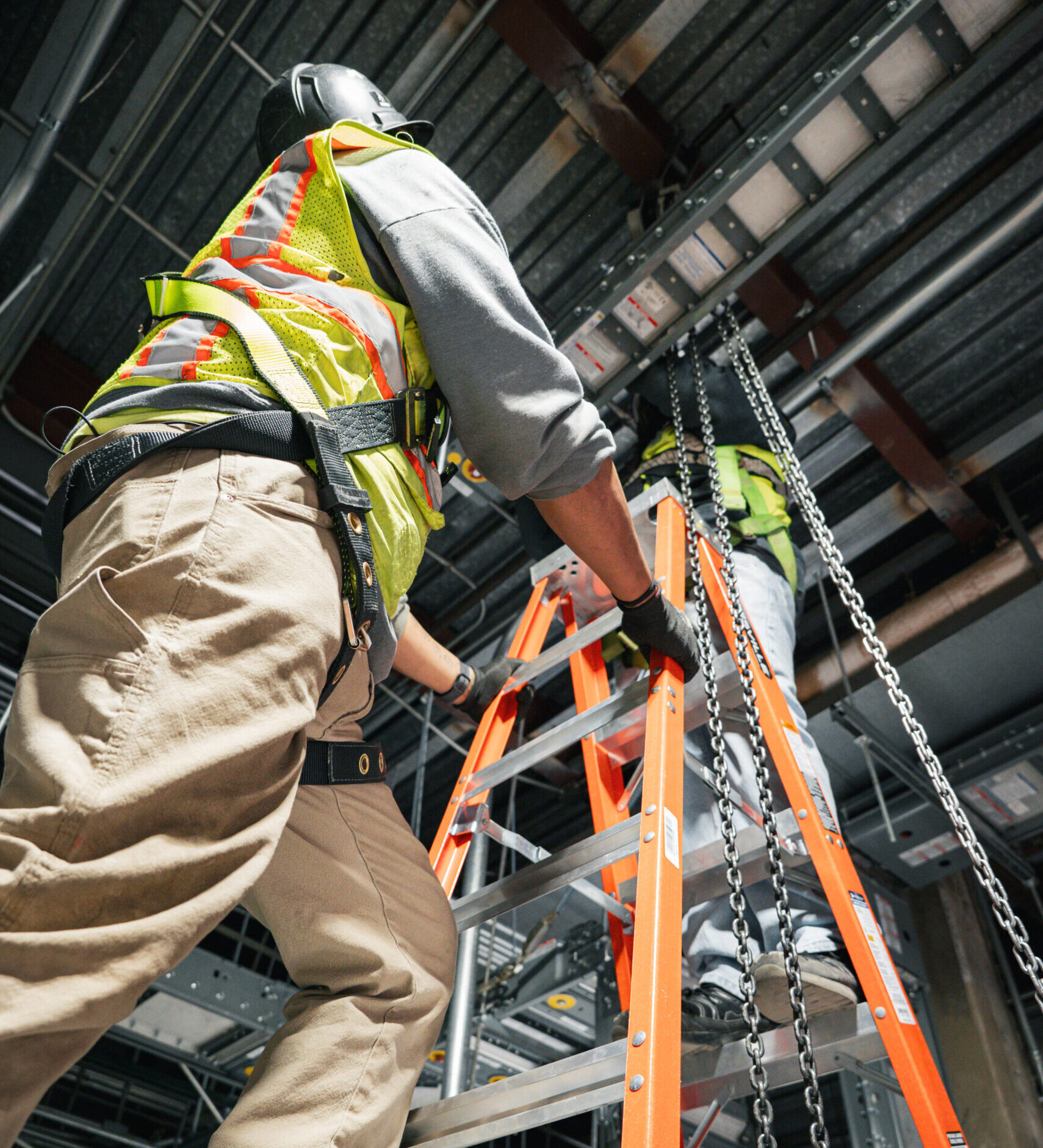Electrical work is a critical component of modern infrastructure, ensuring that homes, businesses, and industries function efficiently and safely. While the fundamental principles of electricity remain the same, the application, complexity, and requirements of electrical work can vary significantly depending on the setting. Here at Spratlin Electrical Contracting, we support industrial and commercial electrical contracting, this article will explore why residential electrical work is separate, and the differences between industrial and commercial electrical work.
Residential Electrical
Residential electrical work pertains to the electrical systems within homes and residential buildings. This includes single-family houses, apartments, and condominiums, and the primary focus is on ensuring that electrical systems are safe, efficient, and meet the everyday needs of homeowners.
Key Tasks
Installation and Maintenance: Installing wiring, outlets, switches, lighting, and electrical panels.
Upgrades and Repairs: Upgrading old wiring to meet current safety standards, repairing faulty systems, and adding new electrical features like home automation systems.
Safety Inspections: Conducting inspections to ensure systems comply with local building codes and safety regulations.
Accessibility: Working in confined spaces such as attics, crawl spaces, and behind walls.
Customer Interaction: Frequent interaction with homeowners, requiring good communication skills to explain issues and solutions.
Regulations and Standards
Residential electrical work is governed by local building codes and the National Electrical Code (NEC). Electricians must ensure that installations and repairs meet these standards to guarantee safety and efficiency. These codes differ greatly from what is required in an industrial or commercial setting, from the kind of wire used, power requirements, and electrical safety protocols, there is almost always a unique code to follow. Due to various laws and regulations, there is also a separate license requirement to operate as a residential or commercial electrical contractor, which leads businesses like ours to either choose a specific field or carry separate licenses and departments to work in each setting.
Industrial Electrical
Industrial electrical work involves electrical systems within factories, plants, and other industrial settings. These environments require robust and high-capacity electrical systems to power heavy machinery, production lines, and specialized equipment.
Key Tasks
Installation and Maintenance: Setting up and maintaining electrical systems for large-scale machinery, control systems, and power distribution networks.
Troubleshooting and Repairs: Diagnosing and repairing complex electrical issues in industrial equipment.
Complexity: Dealing with intricate and high-power electrical systems that require specialized knowledge.
Subcontractor Management: in some situations, working in industrial settings may mean managing workers from other companies who may be installing their own systems for which the electrical contractor is providing power.
Emergency Systems: Installing and maintaining emergency lighting, fire alarms, and backup power systems.
Scalability: Managing electrical systems that serve large numbers of people and extensive spaces.
Safety: Ensuring the safety of electrical systems in environments where there is a higher risk of electrical hazards due to the presence of heavy machinery and high voltage
Regulations and Standards
Industrial electrical work must comply with stringent safety regulations and standards, including those set by the Occupational Safety and Health Administration (OSHA) the National Electrical Code (NEC) and industry-specific guidelines. These guidelines are much more detailed and strict that those in residential settings, due to the fact that higher power requirements create a higher safety risk not only to the electrical contractor, but to the people working in an industrial setting.
Commerical Electrical
Commercial electrical work encompasses electrical systems within commercial buildings such as offices, retail stores, restaurants, and hospitals. The focus is on ensuring that electrical systems support business operations and public safety.
Key Tasks
Installation and Maintenance: Installing wiring, lighting, power distribution systems, and specialized equipment like security systems and HVAC controls.
Energy Management: Implementing energy-efficient solutions to reduce operating costs and improve sustainability.
Emergency Systems: Installing and maintaining emergency lighting, fire alarms, and backup power systems.
Subcontractor Management: in some situations, working in industrial settings may mean managing workers from other companies who may be installing their own systems for which the electrical contractor is providing power.
Scalability: Managing electrical systems that serve large numbers of people and extensive spaces.
Code Compliance: Ensuring that systems meet various codes and standards, including those related to public safety and accessibility.
Safety: Ensuring the safety of electrical systems in environments where there is a higher risk of electrical hazards due to the presence of heavy machinery and high voltage equipment.
Regulations and Standards
Commercial electrical work is subject to a range of building codes, fire safety regulations, OSHA and the NEC. Compliance with these standards is crucial to ensure the safety and functionality of commercial spaces. Industrial and Commercial Electrical applications are very similar in their requirements for life safety, accessibility and power management, with commercial being slightly more complex as it can pertain to multiple styles of business from retail stores, restaurants and even medical facilities. Healthcare Electrical Contractors are subject to some of the strictest and most heavily inspected forms of electrical work because the spaces and systems being powered are supporting the treatment and care of many people whether they are employees or patients. The critical nature of these businesses means that no stone is left unturned when a project ends, ensuring that the electrical power supplied in support of equipment and emergency sources is without flaw.
While the basic principles of electrical work are consistent across residential, industrial, and commercial settings, the specific requirements, challenges, and regulations differ significantly. Residential electricians focus on ensuring the safety and convenience of home electrical systems, industrial electricians deal with complex and high-power systems in hazardous environments, and commercial electricians ensure that electrical systems in public and business spaces are safe, efficient, and compliant with widely varying standards.
